Concussion in rugby: Is rugby safe for kids?
- Published
- comments
After 13-year-old Matteo was injured playing Rugby, he wants to find more about the long-term effects of his concussion and what needs to change in the sport.
Rugby is one of the biggest sports in the world and thousands of you play up and down the UK.
But, at the moment there are concerns about the dangers of repeated head injuries for players in both the elite and grassroots game.
Concussion is one of the most frequently suffered injuries at all levels of the sport.
So, we have been looking into the issue of concussion, what changes are being made to the game, and asking the question - how safe is rugby for kids?
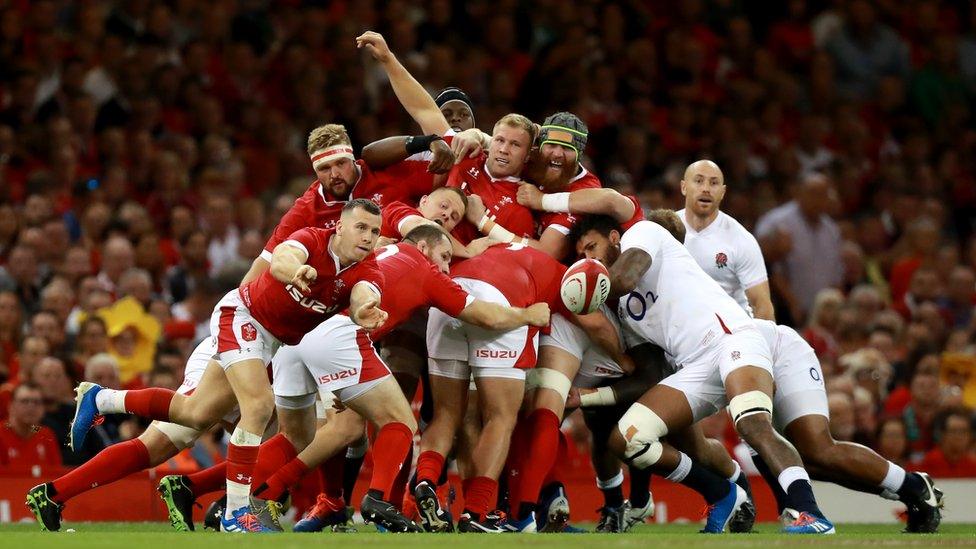
Rugby is a contact sport that is trying to work out how it deals with the problem of head injuries
What is concussion?
Concussion is a type of injury that is caused by a shock to the brain.
It can happen when someone gets a direct hit on the head or receives a blow to the body - so much so that the brain is shaken.
This causes the delicate nerves of the brain to get stretched, which stops them working properly.
• Visual signs: They may look dazed or confused, be slow or unsteady, behave differently or might not be moving.
• Inability to answer: They may not be able to answer simple questions like what the time is or what they had for breakfast.
• Physical symptoms: The person might have a headache, might be being sick, or be sensitive to light or noise.
Some people think that to get a concussion, you have to be knocked unconscious - but that is not true.
Concussion can be dangerous if it is not treated properly and anyone with a suspected concussion should always see a doctor.
In most cases, a person who has suffered a concussion will be told to take a break from sporting activities for 21 days.
The Rugby Football Union (RFU) say players must not go back on the pitch if they have had a suspected concussion. They recommend using the four Rs:
Recognise, Remove, Recover, Return
They say if in doubt, sit them out!
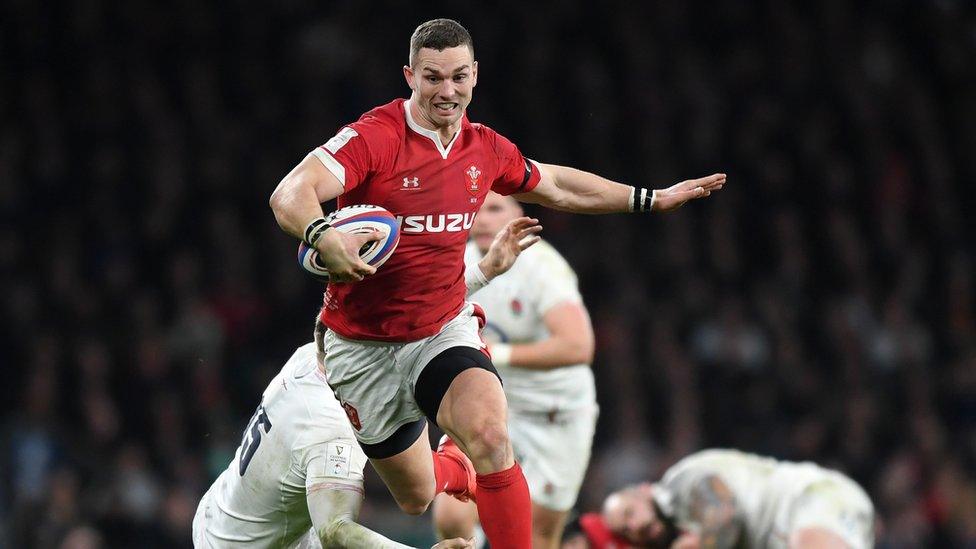
Professional player George North has suffered a number of concussions
Why are people worried?
Concussion is being talked about a lot at the moment because a group of more than 200 former professional rugby players are taking legal action against the organisations in charge of the sport.
They say, playing at a professional level and receiving repeated blows to the head and body has left them with permanent brain damage.
Many of the players involved in the case have now been diagnosed with dementia.
Dementia is something that usually affects older people.
It can make it difficult to remember things. People can forget who family members are, or what everyday objects are called.
It can make people behave in a way that they have never done before. Sufferers can also struggle to control their emotions and find it difficult to deal with their feelings.
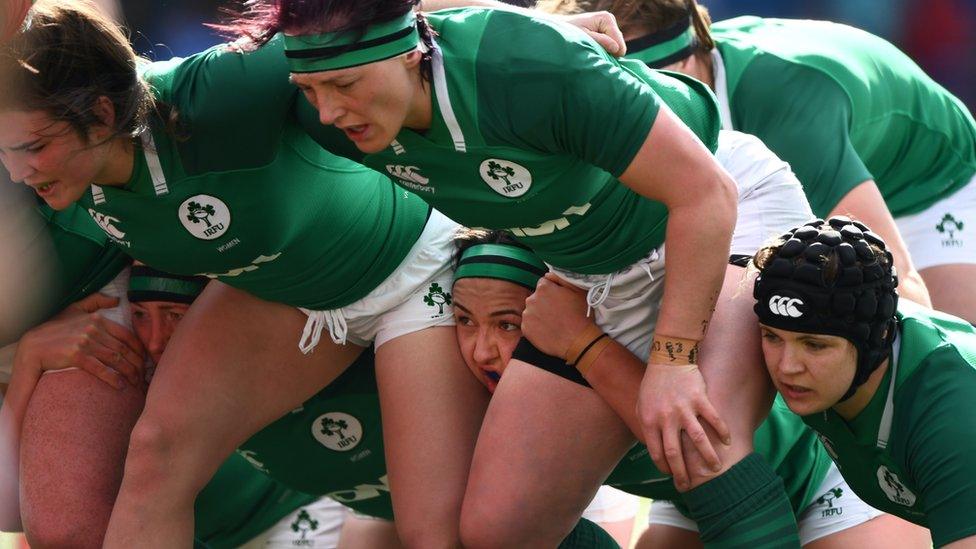
Concussion is one of the most frequently suffered injuries in the elite and community game
What have former players said?
The ex-professionals say they experienced high levels of contact - when players bump into each other - in training and during matches.
They believe that the people in charge of rugby - the governing bodies - are guilty of not protecting them properly during their careers.
Steve Thompson, who played in every England match when they won the 2003 World Cup, says he can't remember any of those games.
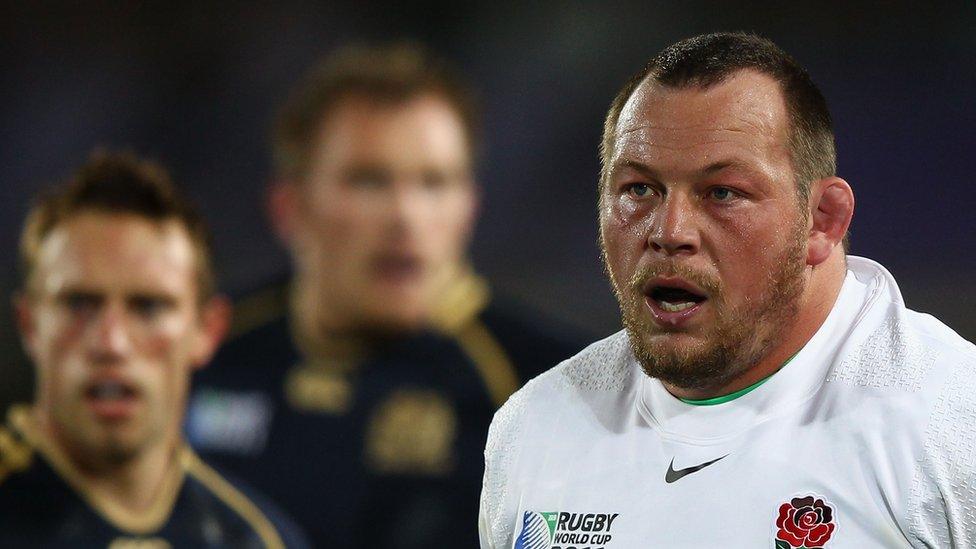
Rugby World Cup winner Steve Thompson has been diagnosed with dementia
He is not alone. Alix Popham - who made more than 350 appearances on the pitch in 13 years as a professional player - told Newsround that he can't remember playing in some of his biggest games either.
He says that he, and other players, were simply not made aware of how dangerous concussions could be.
Alix said: "The only thing we were asked if we had a bang to the head was, do you feel sick? If you didn't feel sick you were sent back on the pitch.
"So I reckon every other day in training, definitely a few times in the game, you would see stars, and you would just have some sniffing salts and carry on.
"I just wish I knew then what I know now, when I was playing - because there would have been hundreds, if not thousands of occasions, where I would have come to the side and pulled myself off the pitch," he added.
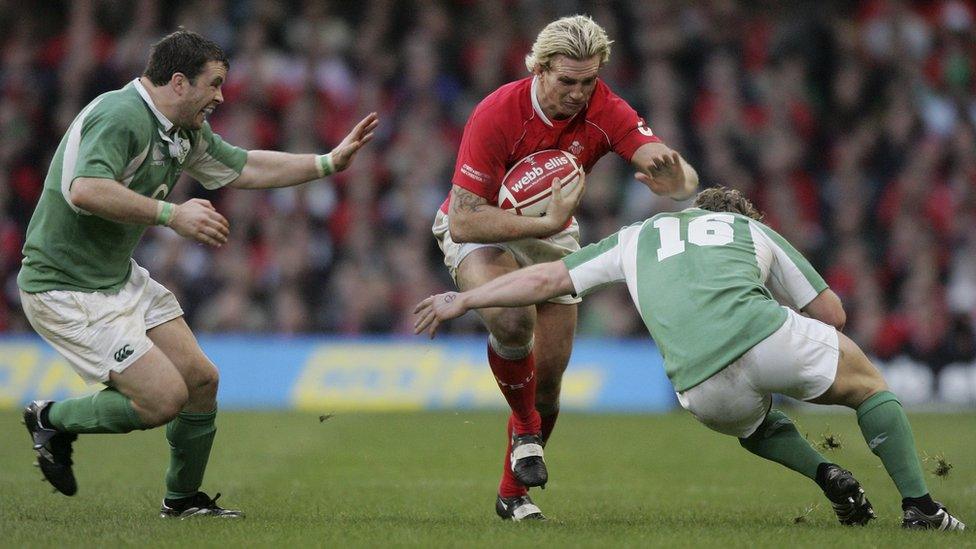
Alix Popham believes that the people in charge of the game did not protect him and his fellow players properly during their rugby careers
Those taking legal action are calling on the governing bodies to make changes to the game that they hope will protect players at all levels, including:
• More concussion training given to those working with players at all levels (such as coaches)
• Yearly brain checks for professional players
• Forcing professional players to stop playing for 21 days after a head injury (currently they can return to play after just seven days)
Steve Thompson told the BBC: "The whole point of us doing this is to look after the young players coming through. I don't want rugby to stop.
"It's been able to give us so much, but we just want to make it safer."
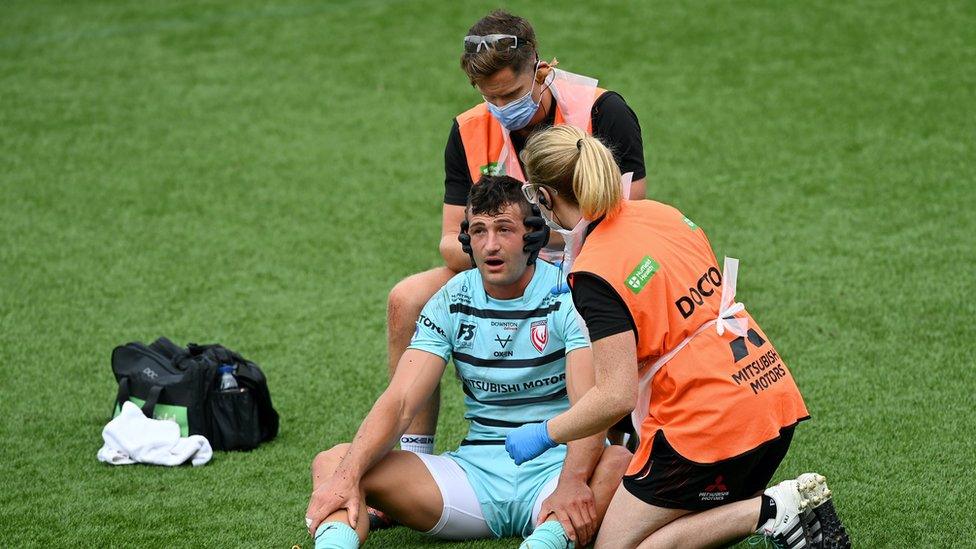
Jonny May was recently treated for a suspected concussion. Specialist sports doctors are at every professional game and are on hand to help care for injured players
What have the people in charge of rugby said?
There are a number of governing bodies who look after rugby globally and also in the UK, including the Rugby Football Union (RFU), Scottish Rugby, Irish Rugby (IRFU) and Welsh Rugby Union (WRU).
World Rugby is the world governing body for the sport of rugby union and it is responsible for making the game's laws around the world, as well as organising competitions like the men's and women's world cups.
World Rugby told BBC Sport: "While not commenting on speculation, World Rugby takes player safety very seriously and implements injury-prevention strategies based on the latest available knowledge, research and evidence."
The Rugby Football Union (RFU), which runs the sport in England, said: "The RFU has had no legal approach on this matter. The Union takes player safety very seriously and implements injury prevention and injury treatment strategies based on the latest research and evidence.
"The Union has played an instrumental role in establishing injury surveillance, concussion education and assessment, collaborating on research as well as supporting law changes and law application to ensure proactive management of player welfare."
The Welsh Rugby Union (WRU) said it "supported and endorsed the World Rugby comment on the subject".
'Welfare for players'
World Rugby recently announced changes to contact for professional union players in training, to try to prevent injuries and protect player welfare, after research showed 35-40% of injuries occurred in training.
World Rugby guidance will now limit full-contact training to 15 minutes a week for professional players.
"This reflects our ambition to advance welfare for players at all levels," said World Rugby boss Alan Gilpin.
The governing body said they will monitor and review this new guidance and the impact it will have on injury rates.
How is the youth game different?
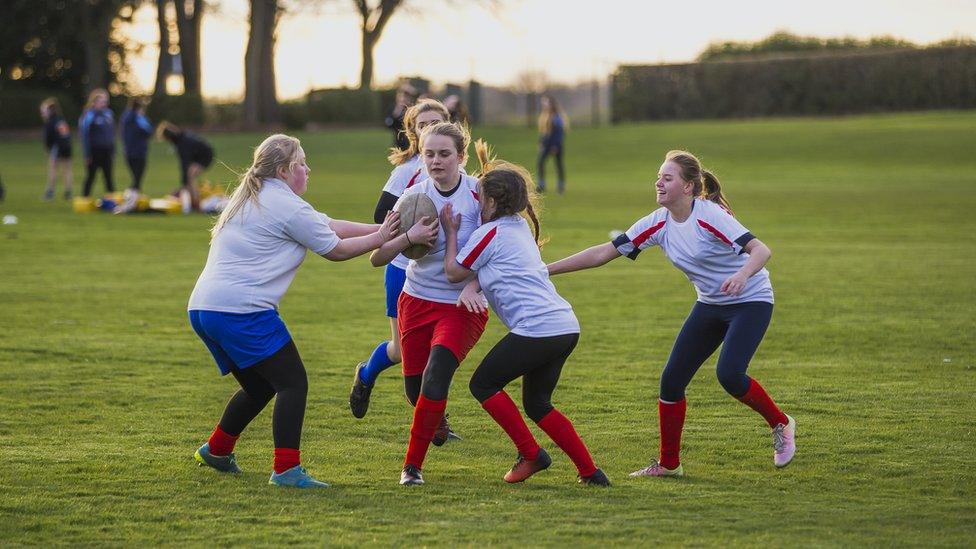
The youth game is played differently and there are specific laws in place to protect young players
The governing bodies say that the chances of getting injured in the community game - the game played by children - is much lower than in the elite game, because of how it is played and the rules that are in place to protect young players.
For example, in England, Under-7s and Under-8s play non-contact rugby, meaning they do not tackle at all.
For those playing in Under-9 to Under-14 teams there is a different law that ensures that players do not tackle above an imaginary level in line with the armpits.
The RFU say the laws allow "players the time to learn rugby basics before contact is gradually introduced" and will "further reduce any community game high risk tackle events by taking two heads out of the same "air space"".
At the community level there are also different types of the game, including flag and tag rugby, which are non-contact.
So, while many of the things that make rugby such a popular sport with fans and players of all ages can be found in both the elite game and the children's game, there have been some differences put in place, which the governing bodies say are there to keep young people as safe as possible.

The RFU say the laws allow young players "the time to learn rugby basics before contact is gradually introduced"
"We are committed"
World Rugby told Newsround that: "Rugby is a fantastic, fun and inclusive team sport with tremendous health and life skills benefits for young people throughout their lives.
"World Rugby's top priority, in line with our new player welfare strategy, is to ensure that anyone playing rugby, including those starting out, enjoys these benefits in a safe environment.
"There are important differences in the way the game is played professionally, in schools and in the community, with the types and chance of injury from each different too.
"We work with national federations like the RFU in England, the Scottish Rugby Union, the Welsh Rugby Union and the Irish Rugby Football Union to improve education, understanding and safety at every level of play; for example, by providing coaching guidance through campaigns such as Tackle Ready and Activate, and introducing return-to-play rules for community players on the limited occasions they receive a head injury.
"We are committed to making rugby as safe, enjoyable and rewarding as it can be for the growing number of boys, girls, men and women playing it."
Newsround also spoke to Rachel Faull-Brown, who looks after player welfare for England Rugby. She told Newsround that while, like in all sports, there is a risk to playing rugby, there are also many benefits.
She said: "There's many benefits to rugby that are also really important as well, whether that be the physical benefits of being fit and healthy, whether it be mental benefits in terms of it just makes you feel good, you get to spend time with your mates and have fun."
She added: "Safety within rugby is very important to us [the RFU], and we're continuing to look at the research and look at how we can apply that, both within the professional game and the community game as well."
The governing bodies feel that they have done enough to make the youth game as safe as it can be, but others still think that more changes are needed.
What research has been done?
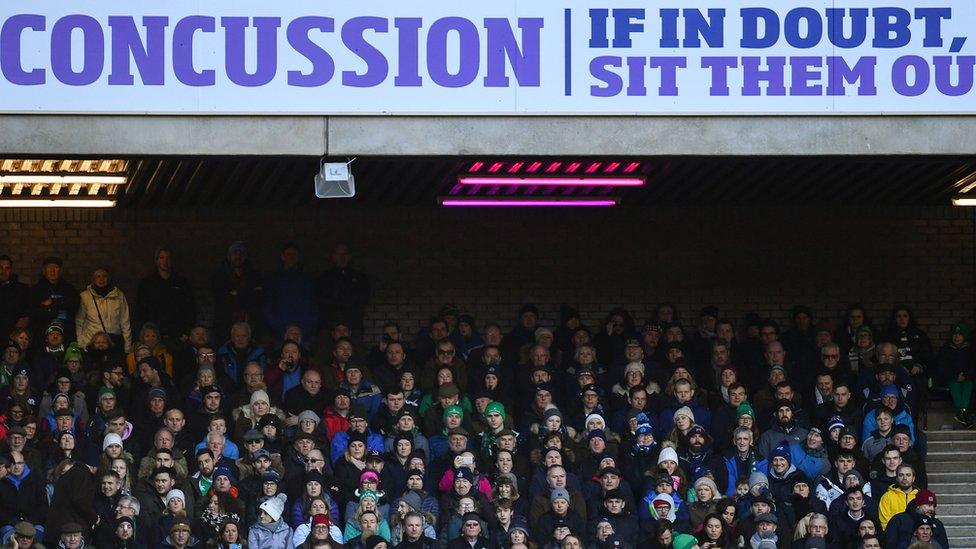
The governing bodies say they take player welfare at all levels very seriously
The issue of concussion has been discussed for the last 40 years,
Some doctors have suggested that the situation in professional rugby could be much worse than in other sports because of the amount of times players make contact with one another.
One study suggests that professional rugby players may be exposed to 11,000 contacts per season.
A recent study carried out by the University of South Wales suggested that after just one season of rugby, players at a professional team saw a drop in both blood flow to the brain, cognitive function (how well their brains worked) and their ability to reason, remember and come up with ideas.
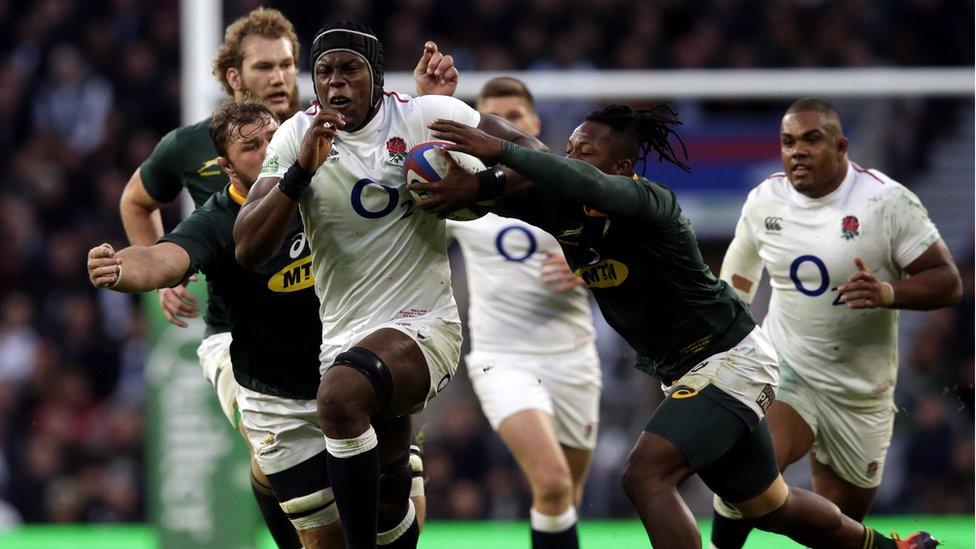
Some studies suggest that professional rugby players may be exposed to 11,000 contacts per season
In another study of 44 elite rugby players from seven clubs, funded by the Drake Foundation, brain scans showed rugby players were more likely to have suffered changes to their brains than other athletes in non-contact sports and non-athletes.
In fact, 10 of the players had signs of damage on their brain scans, including small tears in blood vessels - and these were seen in players with and without a recent head injury.
In half of the players, scans showed unexpected changes in the brain's shape.
A number of studies are still being carried out, but as yet, no definite link between repeated concussions and dementia has been made and science is yet to fully understand the risks.
Have any other sports caused concern?
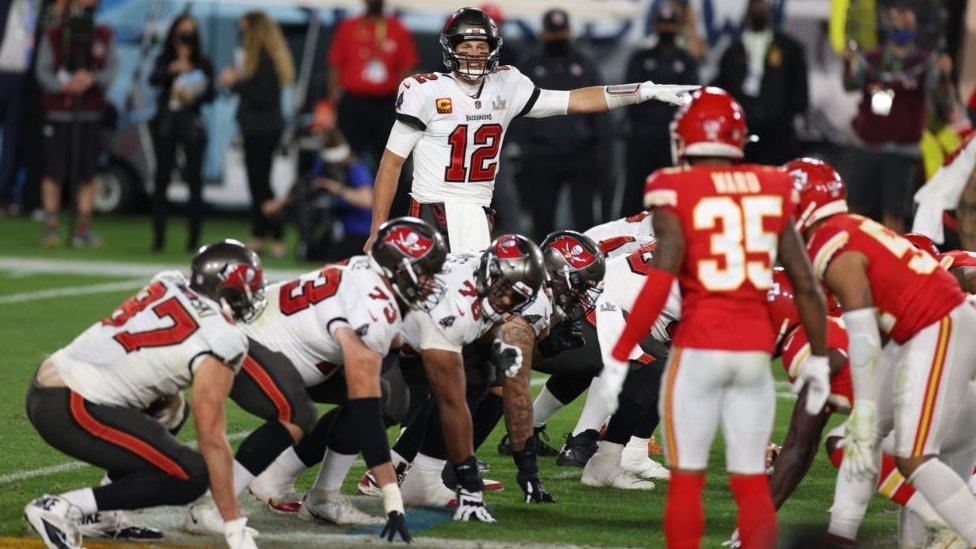
The NFL have made huge rule changes to limit the amount of contact in training
It is not just rugby that is involved in the debate - athletes from the world of football, boxing and America's NFL game have also been diagnosed with severe brain conditions after regularly being concussed.
In 2013, the NFL agreed to pay millions of dollars to players suffering with dementia because of concussions received on the field - massive changes to the US sport have since been made.
Contact in training camps has been halved, and only one contact training session is allowed a week during the season.
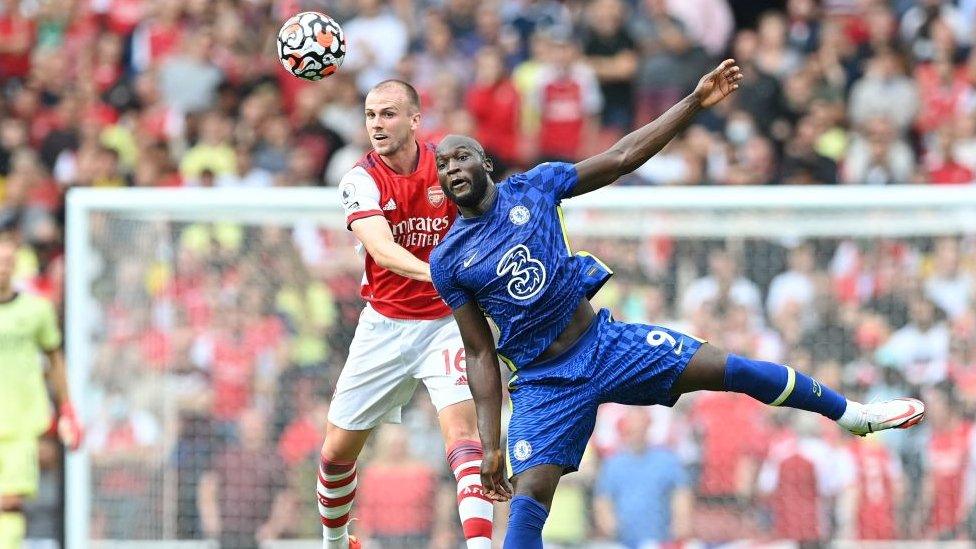
Chelsea's Romelu Lukaku challenges for a header in match against Arsenal
And in football, there have been calls to limit heading the ball in training, after a 2019 study found professional footballers were more likely to suffer from brain diseases later in life.
Further studies looking into a link between heading the ball are being carried out with a number of teams this season.
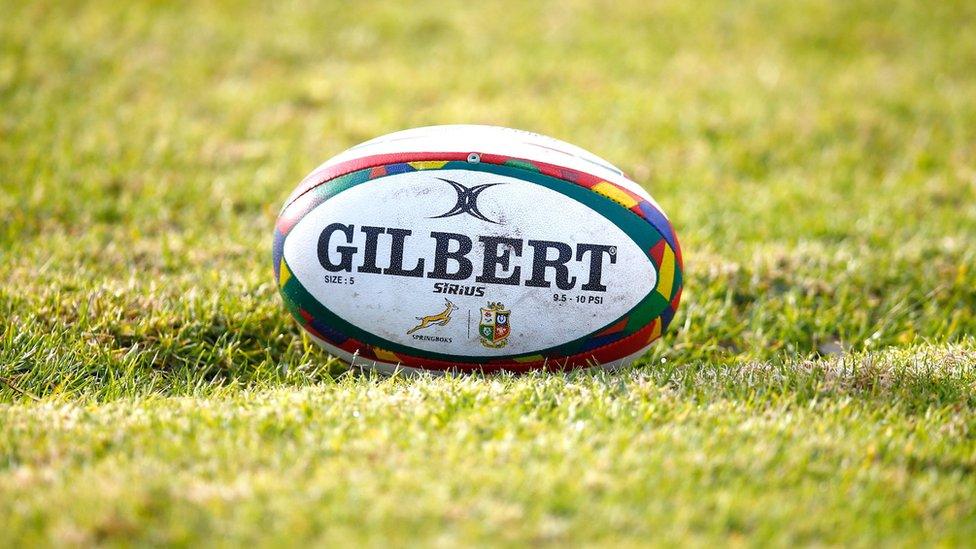
Rugby is one of the world's biggest sports
What have politicians said?
Here in the UK, politicians are concerned about concussion in sport too. A recent special report carried out by MPs found that sporting bodies - and the government itself - had failed to take action to reduce the risks of brain injury in sport.
The Department for Culture Media and Sport (DCMS) Committee Chair Julian Knight MP said: "We've been shocked by evidence from athletes who suffered head trauma, putting their future health on the line in the interests of achieving sporting success for the UK.
"What is astounding is that when it comes to reducing the risks of brain injury, sport has been allowed to mark its own homework.
"The Health and Safety Executive is responsible by law, however risk management appears to have been delegated to the National Governing Bodies, such as the FA. That is a dereliction of duty which must change.
"The failure by these sporting organisations to address the issue of acquired brain injury is compounded by a lack of action by Government. Too often it has failed to take action on player welfare and instead relied on unaccountable sporting bodies.
"As concerning is grassroots sport with mass participation where we've found negligible effort to track brain injuries and monitor long-term impacts."
